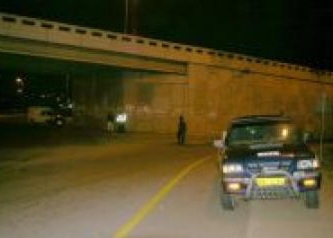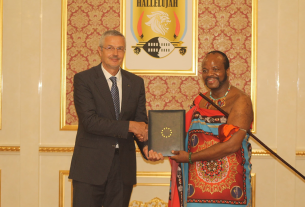By Mbongeni Ndlela
MBABANE – It was an early morning like any other when a deafening blast echoed near the Lozitha Bridge in September 20, 2008.
The failed bombing would later claim the lives of two individuals—Jack Govender and Musa MJ Dlamini—and irreversibly change the life of Amos Mbedzi. It was a sobering moment in Eswatini’s modern history. A moment that sparked a national reckoning on peace, safety, and the price of unchecked extremism.

This tragic incident, along with a series of politically motivated violent acts—including the bombing of the Deputy Prime Minister’s office in Mbabane—marked the turning point that would shape Eswatini’s legislative response to domestic terrorism.
In 2008, the Kingdom of Eswatini enacted the Suppression of Terrorism Act No. 3, not as a tool for political repression—as some have claimed—but as a firm safeguard to preserve national peace, unity, and the right to life.
The Act, a direct response to the emergence of military wings within certain political formations, has been instrumental in preventing further destruction. According to historical records, these military wings operated with tactics intended to intimidate, destabilize, and coerce—aiming to achieve political objectives through fear, not dialogue.
While critics often reference the 1973 Decree as a stumbling block to political freedom, legal experts and government emphasize that the Decree was a product of multiparty democracy of its time. It was a resolution passed through a parliamentary process, reflecting the will and consensus of the nation during that era. Today, the more pressing legal reality lies in the evolving threats that gave rise to the 2008 Act.
“The Suppression of Terrorism Act remains a necessary legal instrument to combat terrorism,” stated Attorney General Indvuna Mashampu Khumalo, in a recent televised interview.
“Terrorism is a global threat, and Eswatini is not exempt from its reach. This law was enacted to protect the Kingdom and its people.”
Indeed, the Act aligns with United Nations Security Council Resolution 1373 and other international conventions designed to prevent terrorism and safeguard civilian populations. It serves not only Eswatini but also contributes to the broader global mission of maintaining peace.
Government Spokesperson Alpheous Nxumalo has stated that Eswatini has always embraced democratic values grounded in dialogue and national unity. He said political expression remains protected—but where violence emerges, so too must the state’s responsibility to protect its people.
“Emaswati have consistently shown their wisdom by rejecting violence as a tool of political engagement. The nation has made it clear that insurgency has no place in a democratic society—a sentiment that continues to resonate throughout the country,” stated Nxumalo in an interview with this publication.
He stated that in the end, the Suppression of Terrorism Act No. 3 of 2008 is not about silencing voices—it is about amplifying the voice of peace, preserving lives, and protecting the future of a nation committed to harmony and lawful expression.




